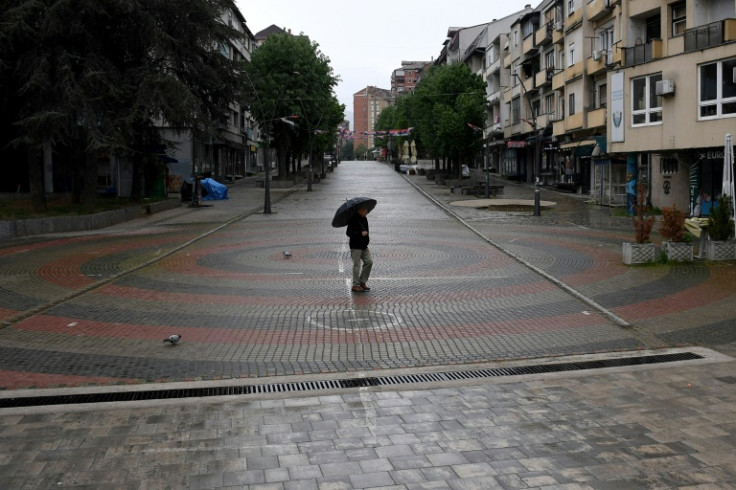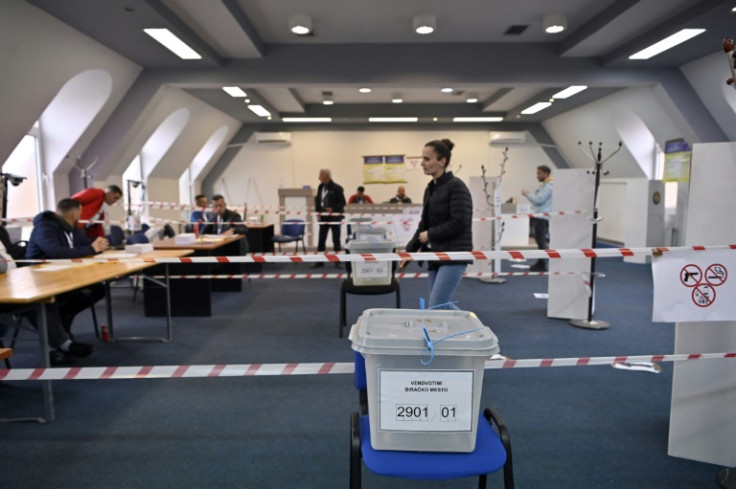Serb-majority North Kosovo Towns Vote On Ethnic Albanian Mayors

Polling stations opened Sunday in four towns in Kosovo's Serb-majority north holding an extraordinary local vote on whether to oust their ethnic Albanian mayors in a territory riddled with deadly tensions.
The vote could pave the way for the election of Serbs to the mayoral posts after the appointment of the ethnic Albanians sparked violence in the Belgrade-backed region.
But by 0900 GMT, four hours after polling stations opened, only 85 out of some 45,000 eligible voters cast ballots, the Central Election Commission said (CEC).
The figures suggested a boycott of the vote that would fail if the trend continues.
For the election to be valid turnout has to be above 50 percent.
CEC spokesman Valmir Elezi urged voters to "exercise their right and vote whether or not they want to have the current mayors".
Tensions in Kosovo's troubled north have been smouldering for months, following local elections won by the ethnic Albanian mayors in April last year.
Ethnic Serbs boycotted the elections and Serb protesters later clashed with Kosovo police and NATO troops as the Albanian mayors tried to take office. Around 30 NATO peacekeepers were injured.
Led by the largest Serb and Belgrade-backed party, Serb List, thousands of citizens of North Kosovo's four municipalities signed petitions in January for the dismissal of all the current mayors in the north by a referendum.
But despite previously favouring the new vote, organising the mass collection of signatures and using the opportunity to take control of the local administration, the Serb List surprisingly called for a boycott.
"The position of Serb List is to not participate in the vote," said the head of the party, Zlatan Elek.
Although he cited a disagreement with Kosovo's ethnic Albanian leadership it remains unclear why the Srpska List decided to shun a vote which had been its target since boycotting the last election.
"I will not vote. I don't listen to those from the Srpska List, but because I don't see a point, we can't replace those mayors, there aren't enough of us," a 53-year-old Serb man from the north, who asked not be named, told AFP.
Local government administration minister Elbert Krasniqi criticised the List saying it "considers the institutions (belong) only to themselves .... and does not represent the interests of citizens".
In addition to the political challenge, election authorities face a logistical one.
Thirty-three schools had refused to provide their premises for the vote, while 10 others were accessible. The authorities had to use containers to serve as polling stations.
School principals said cultural and other activities had already been planned for weekends across the whole of April.
"This is an attempt by the Serb List to hold the Serb community hostage, but it will fail and the process will not stop," said CEC official Alban Krasniqi.
If Sunday's vote on whether to oust the mayors succeeds, which at the moment does not seem likely, President Vjosa Osmani will set a date for an early municipal election in the territory.
Ethnic tensions in the north had boiled over in September with an attack by heavily armed Serbs on a Kosovo police patrol in the village of Banjska, which left one policeman dead.
Three Serb gunmen died in an ensuing gun battle at a monastery in the village close to the Serbian border.
Former vice-president of the Serb List Milan Radoicic took responsibility for the attack.
It was one of the worst escalations in years in Kosovo, which declared independence from Serbia in 2008.
Voting in the municipalities of Leposavic, Zubin Potok, Zvecan and North Mitrovica was to close at 1700 GMT.

© Copyright AFP {{Year}}. All rights reserved.




















